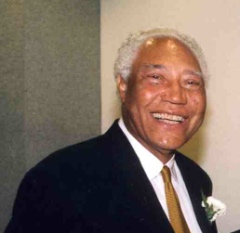
by Jesse J. Lewis, Sr.
Taken from The Christian Science Monitor by Linda Feldman
However, if not, President Obama’s promise to use executive action to get around congressional gridlock is unparalleled in modern times, some scholars say. But to liberal activists, he’s not going far enough. The course of Obama’s final three years in office, in which he has promised continuing assertive use of executive action, will be shaped by the debate where to critics, Obama is the ultimate “imperial president,” willfully violating the Constitution to further his goals, having failed to convince Congress of the merits of his arguments. To others, he is exercising legitimate executive authority in the face of an intransigent Congress and in keeping with the practices of past presidents. Here are some main points he made in his fifth State of the Union (SOTU) speech.
• Inequality. Mr. Obama has referred to growing income inequality, and a lack of upward mobility by the lower and middle classes, as “the defining challenge of our time.” Critics say he is engaging in “class warfare,” but Obama is undaunted – and likely sees this populist message as central to Democrats’ chances in the fall midterms.
As he did last year, the president called on Congress to raise the federal minimum wage. But this year, he’s going for a higher minimum – from the current $7.25 an hour to $10.10 over two years. And to spur Congress on, Obama announced that he plans to sign an executive order requiring workers hired under new or renewed federal contracts be paid a higher minimum wage, at least $10.10 an hour. He will also, once again, call on Congress to extend long-term unemployment benefits.
• Jobs. Obama acknowledged that the current unemployment rate of 6.7 percent, though declining, is still too high. More ominously, the US labor participation rate – the workforce’s share of people who are either working or looking for a job – is at a 35-year low. But he highlighted actions he has taken, and plans to take, to boost employment.
One such initiative, announced in 2012, aims to create 45 “manufacturing hubs” around the country, public-private partnerships aimed at spurring innovation and boosting middle-class incomes. Lacking funding from Congress, Obama has had to scale back his goal. But using repurposed federal funds, two are completed, and two are in the pipeline. Earlier this month, the president visited the new hub in Raleigh, N.C., and this could win a line in the SOTU.
• Obamacare. Obama can hardly mention his signature domestic program, the Affordable Care Act (ACA), without acknowledging the terrible problems in the rollout last year. But he didn’t dwell on it. Instead, he highlighted the fact that HealthCare.gov now works and other strides – including the 3 million (and counting) Americans who have signed up for coverage on government-run health-insurance exchanges, as well as the millions more who have newly enrolled in Medicaid. He reminded viewers of the popular elements of the ACA, including a ban on excluding people with health problems from coverage. And he reminded Republicans that he rejects any efforts to defund, weaken, or repeal the ACA citing the forty attempts to de-fund it.
• Immigration. This is the one big policy area where politically polarized Washington might, repeat might, be able to find common cause this year. Republicans know they have to act on the issue of America’s 11 million illegal immigrants, many of them from south of the border, if they hope to attract significant Latino votes in the future.
• Climate change. His longstanding energy policy is “all of the above” – from fossil fuels to green technologies. Environmentalists, a key Democratic constituency, want him to place more limits on fossil fuels in a transition toward more clean energy, as 18 groups said in a Jan. 16 letter to the president. Obama adviser John Podesta pushed back, defending the steps the president has taken to reduce greenhouse gas emissions.
• Education. Both early childhood education and college affordability fit into Obama’s larger theme of income inequality and upward mobility, and they definitely occupy space in the SOTU. More and earlier education equals more and better job opportunities down the road, the thinking goes. In last year’s SOTU, Obama proposed universal pre-kindergarten for 4-year-olds, at a cost of $75 billion, but legislation has stalled.
• Afghanistan, Iran, and NSA. During Obama’s first presidential campaign, he promised to extract the U.S. from two costly wars, those in Afghanistan and Iraq. This is the year that he can check off those two goals, as U.S. troops end their 13-year military involvement in Afghanistan at the end of 2014. The Iraq war ended in 2011. Obama is likely to put a punctuation mark on these milestones Tuesday night.
Though President Obama has streamlined his ambitions in this speech, perhaps he can get better participation from Congress in his goals that are so important to him
email:jjlewis@birminghamtimes.com



